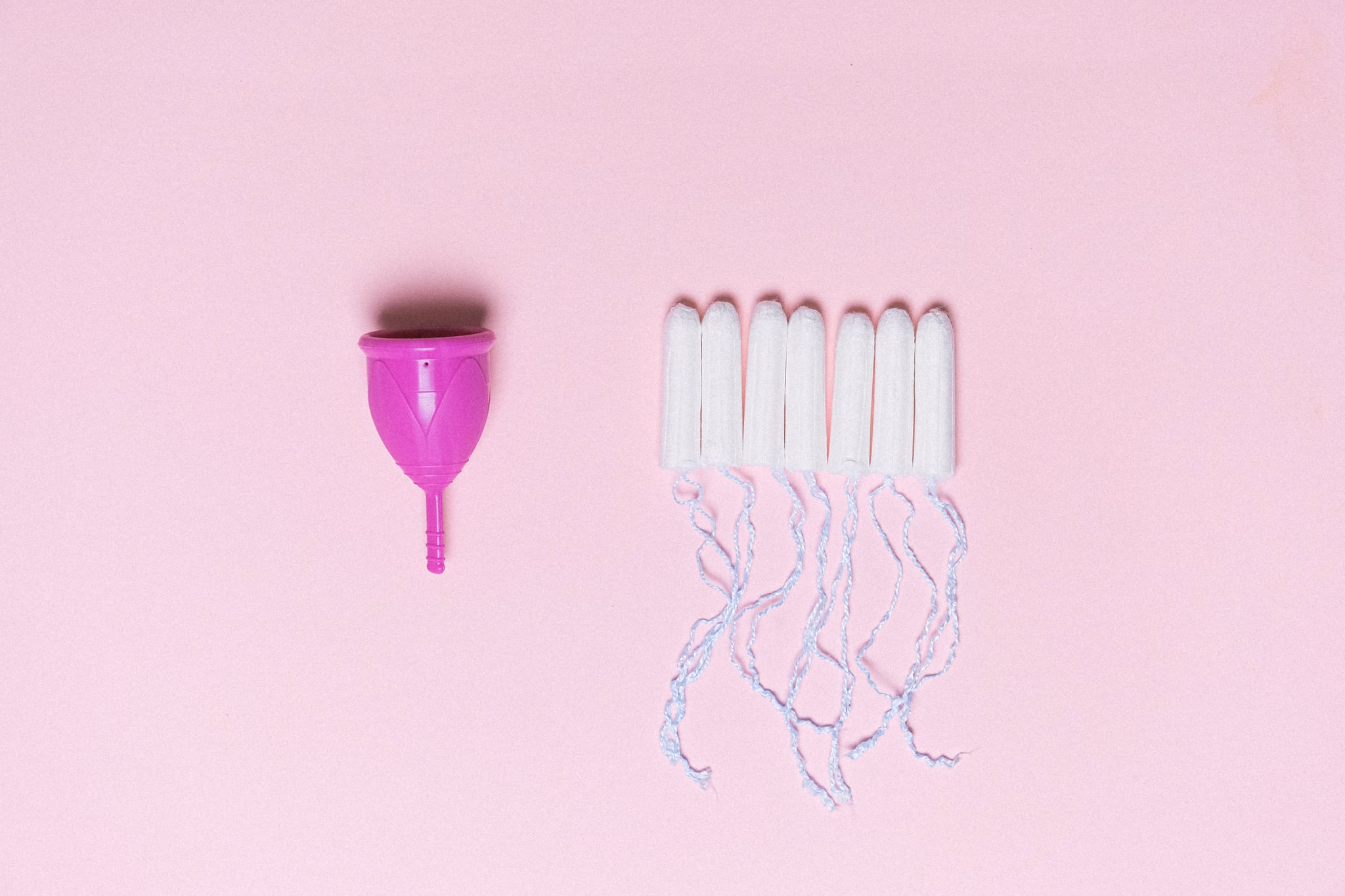Products You May Like

When it comes to preventing vaginal infections, quickly changing out of your sweaty clothes post-workout and choosing cotton underwear are two common suggestions. But should you be reassessing the period-care products you choose, too?
To find out if products like pads, tampons, menstrual cups, and even period underwear contribute to yeast infections, POPSUGAR spoke with Alyssa Dweck, MD, a board-certified gynecologist in New York and Intimina‘s sexual and reproductive health expert.
Can My Period Products Increase My Chances of Vaginal Infections?
It really depends on what product you’re using, how you’re using it, and your own personal sensitivities. “From time to time, women may find themselves sensitive to menstrual product materials, in which case vaginal pH and the biome might be disrupted and increase [the] risk of infection or symptoms such as itching, irritation, discharge, or odor,” Dr. Dweck explained.
An example of this is fragrance in a scented tampon. According to Dr. Dweck, fragrance is a common disrupter to vaginal pH and the biome. So if you want to lower your risk of developing an infection, you should pass on all scented menstrual-care products.
The good news is that Dr. Dweck said most people who menstruate can use whatever menstrual-care product they prefer without any problems. So if you like using pads over tampons, you do you. However, Dr. Dweck said that because menstrual cups or discs collect period blood instead of absorbing it, they might be beneficial for those who are prone to infections.
Of course, you’ll want to regularly change whatever period-care product you use to reduce your risk of developing a serious illness called toxic shock syndrome (TSS). A tampon or a pad should be worn for no more than eight hours, while menstrual cups should be worn for no more than 12 hours at a time.
Can My Period Underwear Contribute Toward Vaginal Infections?
According to Dr. Dweck, unless you have sensitivities to the specific material the underwear is made out of, infections shouldn’t be a problem.
As a refresher, period underwear is specifically designed to absorb blood and period fluid and prevent leaks, similar to a pad. Dr. Dweck said that if your period underwear is performing properly, the vulva skin shouldn’t be directly or constantly exposed to blood, a substance that can be a medium for bacteria.
“Choosing the right panty absorbance for flow and changing the panty if/when saturated will further lessen the likelihood of direct long-term blood exposure of the vulva and minimize chance of infection,” Dr. Dweck said. It’ll also reduce your chances of leakage through your clothes.
Can Vaginal Washes and Wipes Cause Infections?
As a reminder, the vagina doesn’t need any help in cleansing itself. As Dr. Dweck explained, “internal mechanisms naturally keep it clean.” So if you’re being marketed a product that’s meant to clean the vagina, you can promptly pass. The vulva, or the external genital organs, can really just be gently cleansed with mild, fragrance-free soap and water.
That being said, Dr. Dweck said many people use vaginal wipes and washes without any problems. She said risk of vaginal infection, and even irritation and sensitivity, is individual. However, those who have recurrent infections and want to use vaginal washes and wipes should consider using hypoallergenic products that are also free of fragrance and dyes.
And when in doubt, bring the product to your doctor to get the final sign-off.
Image Source: Pexels / Anna Shvets
